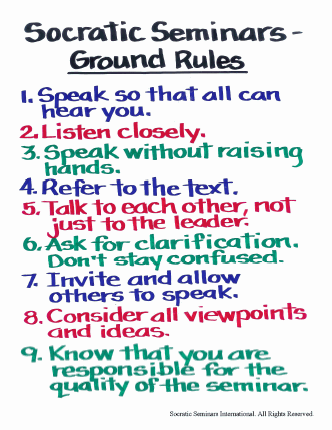September 10. 2019
RL.9-10.1 Cite strong and thorough textual evidence to support analysis of what the text says explicitly as well as inferences drawn from the text.
RL.9-10.2 Determine a theme of a text and analyze in detail its development over the course of the text, including how it emerges and is shaped and refined by specific details; provide an objective summary of the text
W.9-10.1 Write arguments to support claims in an analysis of substantive topics or texts, using valid reasoning and relevant and sufficient evidence.
Obj: I can determine a theme of a text and analyze its development over time.
I can argue the theme and support my claim with evidence.
Starter
Create a theme based question on any part of the Alchemist to use for a Socratic Seminar.
UNIVERSAL THEME/ CORE QUESTION:
Write a question dealing with a theme(s) of the text that will encourage group discussion about the universality of the text.
Example: After reading A Tale of Two Cities, you could ask, “Is revenge ever justified?”
Then, find a quote that you think is interesting or relevant to the theme.
Vocabulary
Word: Theme
Part of Speech; Noun
Dictionary Definition: The theme of a literary work is a salient abstract idea that emerges from the treatment of its subject matter
Your Definition:
Activity: Give an example of a universal theme.
Activity
1. The Alchemist 153-167
With a partner, read through the end and epilogue.
Write down any quotes that you would like to address or include in the seminar.
2. Socratic Seminar
Topic:
Identify a theme of the Alchemist and discuss how the main ideas relate.
Connect this theme to your life and society today.
Closure
Write a five sentence reflection on the quality of your seminar.

No comments:
Post a Comment